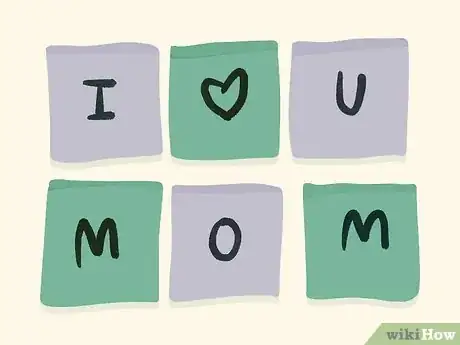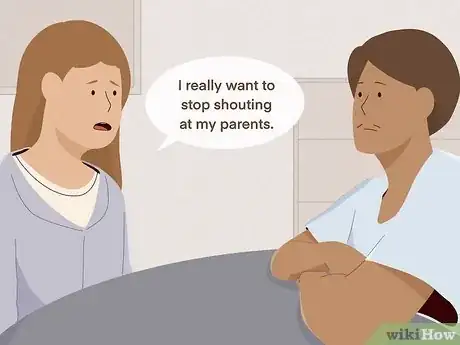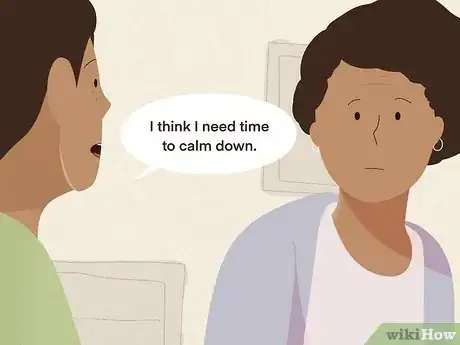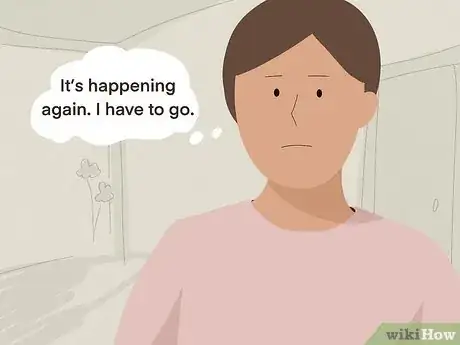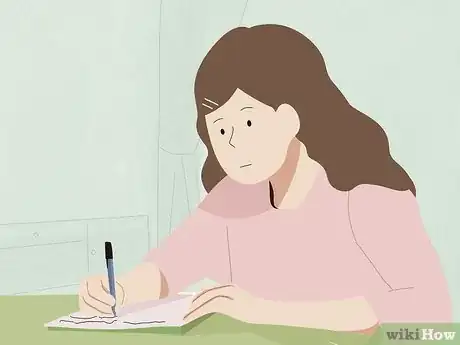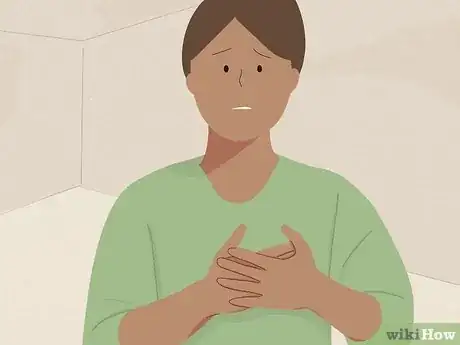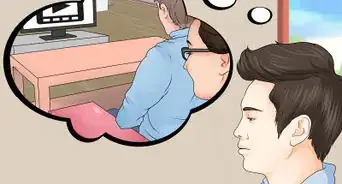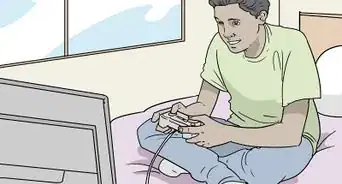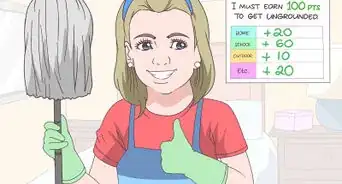X
wikiHow is a “wiki,” similar to Wikipedia, which means that many of our articles are co-written by multiple authors. To create this article, volunteer authors worked to edit and improve it over time.
This article has been viewed 24,624 times.
Learn more...
Anger is a funny thing. Often the people we lash out at are the people we care about the most. As painful as it is, sometimes we lose control and do things we don't want to do. This article will help you to stop shouting at your parents.
Steps
-
1Make reminders for yourself. Write out reminders to stop shouting and to remain calm where you will see them often. This can be an affirmation to deal with conflict constructively.
- Put a note on your bathroom mirror or locker.
- Wear a special glove or bracelet to remind yourself.
- Set an alarm on your phone or watch for every hour or at times of day that are stressful. When your alarm goes off, remind yourself, "That was to remember to stop yelling. I'm not going to yell."
- Remind yourself verbally. Tell yourself that you respond to conflict calmly and with courtesy. Always use positive self-talk to boost the behavior you wish to use instead.
-
2Tell someone of your desire to stop shouting. If you have someone you can trust, tell them about your goal. Be aware that telling someone won't work for everyone. For some people, the objective works best if it is a secret.
- Don't tell someone if you think they will respond negatively.
- Pick the one person you know will understand and encourage you.
Advertisement -
3Make and use an exit strategy. If you feel a fight coming on, immediately leave the situation. This will give you the necessary space to calm down, cool off and think clearly about how to approach the matter in a calmer way, later.
- If you can, tell the person you were going to fight with what is going on. Tell them that you need some time to yourself to calm down.
- If the fight is too far along to explain yourself, just leave. You can apologize later.
- Go somewhere safe.
- Calm down.
-
4Apologize for things you've done wrong. Be responsible for your own words and actions. Apologizing is actually a really good learning tool, as you don't forget how it felt.
- Apologize only when the other person has calmed down.
- Be brief and sincere.
- If they accept your apology, say thank you and move on to another topic.
- If they reject you, leave again. Apologize once more, at another time, but don't pester them with apologies. (No one likes to hear "I'm sorry sorry sorry sorry sorry sorry...")
-
5If you get caught up in a fight, it will be very hard to leave.
- Tell yourself, "It's happening again. I have to go."
- Leave.
- Don't go back until you are calm and so are they.
- Don't worry that by backing down you have let them win. The winner is the one who leaves and recognizes that fighting is worthless.
-
6Write down, at the end of the day, your perceptions and feelings about your fights.
- Write down every fight, big or small.
- Why did you get angry?
- Why do you think they got angry?
- What could you have done differently?
- What could they have done differently?
- How long did the fight last?
- What did you fight about?
- How important was (is) the fight to you?
- Do you think you will continue this fight in the future?
-
7Avoid using yelling as a communication strategy. If your parents are yelling at you, don't yell back. Stay calm and lead by calm example.
- Wait until they are done talking (unless you are getting too angry; then leave immediately).
- Tell them calmly and softly that you don't like it when they yell at you.
- Tell them that since you are making an effort to change your ways, you expect them to do likewise.
- If all else fails, say, "You're upset right now. There's nothing I can do to change that. I'm going to go somewhere else. Come find me when you are calm." Then go away.
- Don't look back.
-
8Seek help for any long-term inability to control anger. If your anger issues become too much of a problem, it may be time to seek professional help.
-
9Don't beat yourself up about your issue. Everyone has something they struggle with. Tell yourself, "That was wrong. I'm going to try to fix it. And I won't do it again." Recognize that you are doing your best.
Advertisement
Warnings
- Do not hurt yourself or attempt suicide. If you have a desire to do so, report this immediately to someone who will help you get prompt medical assistance.⧼thumbs_response⧽
Advertisement
About This Article
Advertisement
